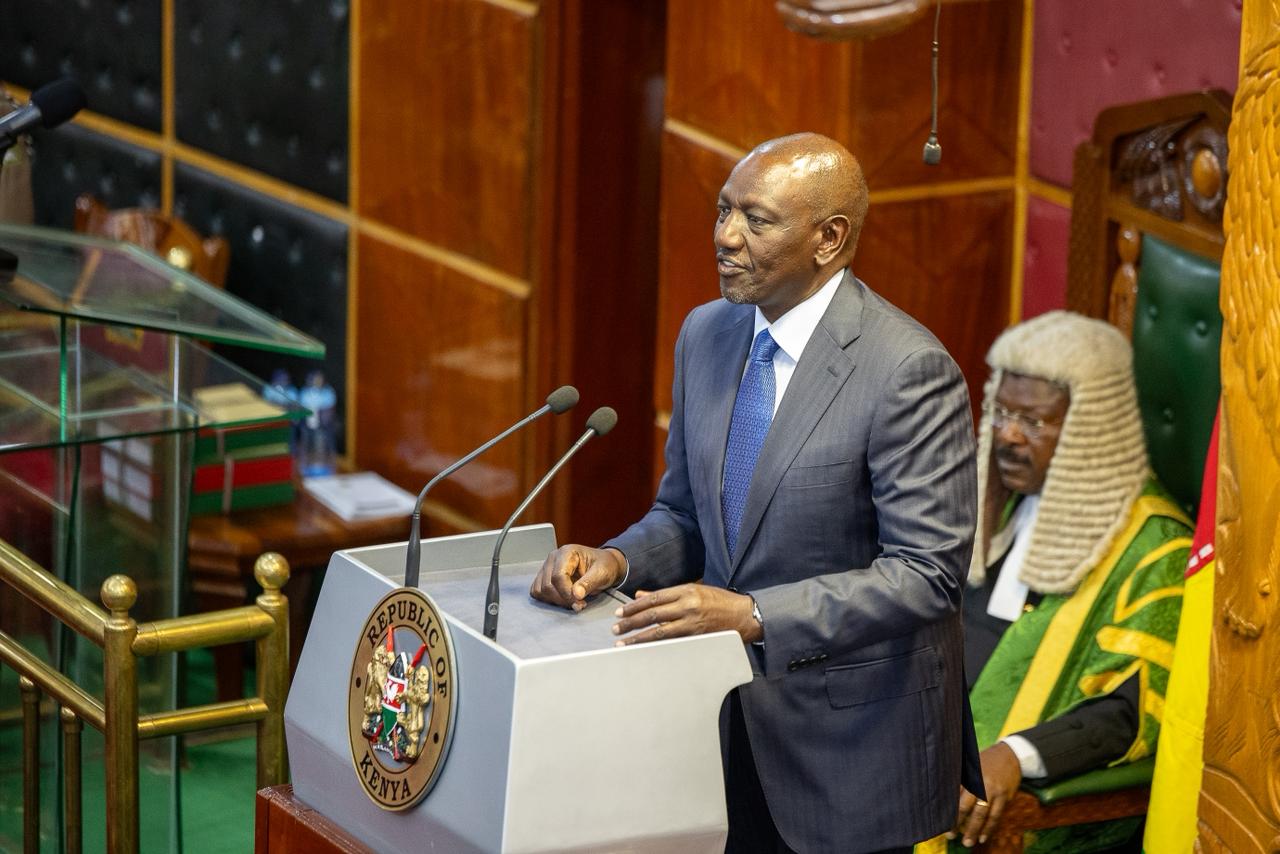
 President William Ruto while giving the State of Nation Address/PCS
President William Ruto while giving the State of Nation Address/PCSPresident William Ruto has drawn a sharp contrast between the despair of 2022 and the optimism of 2025, declaring that Kenya has moved “from empty to full sufurias ” as food prices begin to fall across the country.
Delivering his State of the Nation Address on Thursday, Ruto placed food security and the cost of living at the heart of his message, saying that the country’s journey toward economic stability must begin with ensuring that every household can afford basic food supplies.
Ruto recalled the symbolic protests of 2023, when Kenyans marched in the streets banging empty sufurias to express frustration over the skyrocketing cost of basic commodities.
He said the image became an indictment of the country’s dependence on food imports, decades of underinvestment in agriculture, and a flawed reliance on consumption subsidies that offered temporary comfort but no real change.
“We made a deliberate and strategic decision to subsidise production, not consumption,” he said.
“Lasting relief does not come from price controls—it comes from strengthening agriculture, the lifeline of our nation.”
Ruto said this shift in policy has begun paying off.
He pointed to what he called measurable, historic gains in agricultural output.
The government’s farmer registration programme—through the Kenya Integrated Agricultural Management Information System (KIAMIS)—has grown from fewer than 300,000 farmers captured in 2022 to more than 7.1 million registered today, he revealed.
The system, he said, has given government unprecedented visibility, allowing the precise distribution of inputs and the elimination of cartels and middlemen who once manipulated the sector.
A cornerstone of this progress, Ruto noted, has been the distribution of 21 million bags of affordable fertiliser, which he said slashed prices by nearly two-thirds and saved Kenyan farmers more than Sh105 billion.
"With more farmers accessing inputs, the country’s productivity has climbed sharply," he stated.
The President highlighted Kenya’s maize harvest as the clearest evidence that the reforms are taking hold.
The national maize output rose from 44 million bags in 2022 to 67 million bags in 2024, with projections showing the country could hit 70 million bags this year—one of the highest in Kenya’s history.
This surge, he added, has been directly felt in homes, where the price of a 2kg packet of maize flour has dropped from Sh250 to Sh130, easing pressure on millions of families.
Beyond maize, Ruto said several agricultural sub-sectors are experiencing renewed energy.
Tea earnings have jumped from Sh138 billion in 2022 to Sh215 billion in 2024.
Coffee prices have surged, supported by the distribution of nearly 50,000 seedlings and improved farmer earnings of Sh120–150 per kilo, up from Sh70.
Edible oil production has expanded by 9 per cent, while cotton, cashew nut and coconut yields have climbed significantly following government investment and seedling distribution.
The once-collapsed sugar sector, he said, is slowly stabilising.
Ruto argued that these outcomes signal a turning point and reaffirm Kenya’s ability to “walk the same path as other developing economies that lifted themselves through agricultural transformation.”
He closed on an optimistic note: “Hunger should never define
the Kenyan experience again. We are rebuilding the foundations so every
household can move from empty sufurias to full baskets—and into a more secure
future.”















